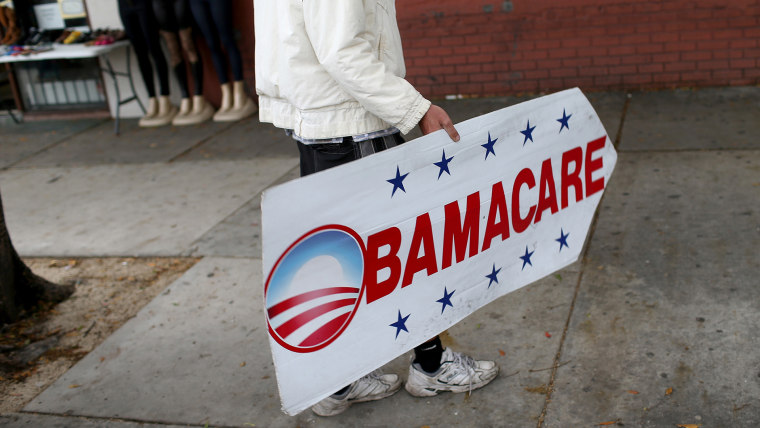Last fall, during his confirmation hearing, Alex Azar, Donald Trump's choice to lead the Department of Health and Human Services, said he hadn't seen "any effort to sabotage" the Affordable Care Act. Perhaps he ought to take another look.
The president and his team have taken several steps to undermine the existing U.S. health care system, and American consumers are already feeling the consequences of those actions in the form of costlier coverage.
It would be a mistake, however, to assume that the Republican administration is done. The Washington Post reported over the weekend:
The Trump administration took another major swipe at the Affordable Care Act, halting billions of dollars in annual payments required under the law to even out the cost to insurers whose customers need expensive medical services.In a rare Saturday afternoon announcement, the Centers for Medicare and Medicaid Services said it will stop collecting and paying out money under the ACA's "risk adjustment" program, drawing swift protest from the health insurance industry.
A Blue Cross and Blue Shield Association spokesperson, for example, told the New York Times, "Any action to stop disbursements under the risk adjustment program will significantly increase 2019 premiums for millions of individuals and small-business owners, and could result in far fewer health plan choices. It will undermine Americans' access to affordable care, particularly for those who need medical care the most."
This may seem like a fairly obscure part of the health care debate, so let's unpack it a bit.
When it comes to the market for individuals and small businesses, the Affordable Care Act built in some "shock absorbers," intended to help stabilize insurance pools. This includes risk-adjustment policies, which are designed to lessen the blow among private insurers that end up with too many high-cost consumers.
As Jonathan Cohn explained yesterday, when risk-adjustment policies work properly, "the insurers with the healthy customers basically send money over to the ones with the sicker customers. When the schemes do not work properly -- or, in this instance, if the insurers don't get money they are expecting -- then insurers that have enrolled sicker beneficiaries can end up with big losses, just as those with healthier beneficiaries could reap windfalls."
According to the Trump administration, a federal court in New Mexico recently ruled that the existing risk-adjustment system is flawed, so the Department of Health and Human Services effectively had no choice but to stop the payments to private insurers.
Except, that's a highly debatable posture. Ordinarily, an administration would explore a variety of alternatives -- including applying changes exclusively to New Mexico -- before making a dramatic national move like this. The fact that Team Trump took this step suggests to the White House's critics that the administration may be exploiting a district court ruling to advance a political agenda against "Obamacare."
In fairness, it's worth emphasizing that HHS has described the move as temporary and asked the court to reconsider its preliminary ruling.
But in the meantime, the fight has added additional uncertainty to the market, and no one seems able to say with confidence when (or how) this will be resolved.
And the longer this continues, the more likely it is insurers will raise premiums or even consider withdrawing from markets.
The Trump administration was already facing credible accusations of making the system worse on purpose. Those claims are poised to get a little louder.
